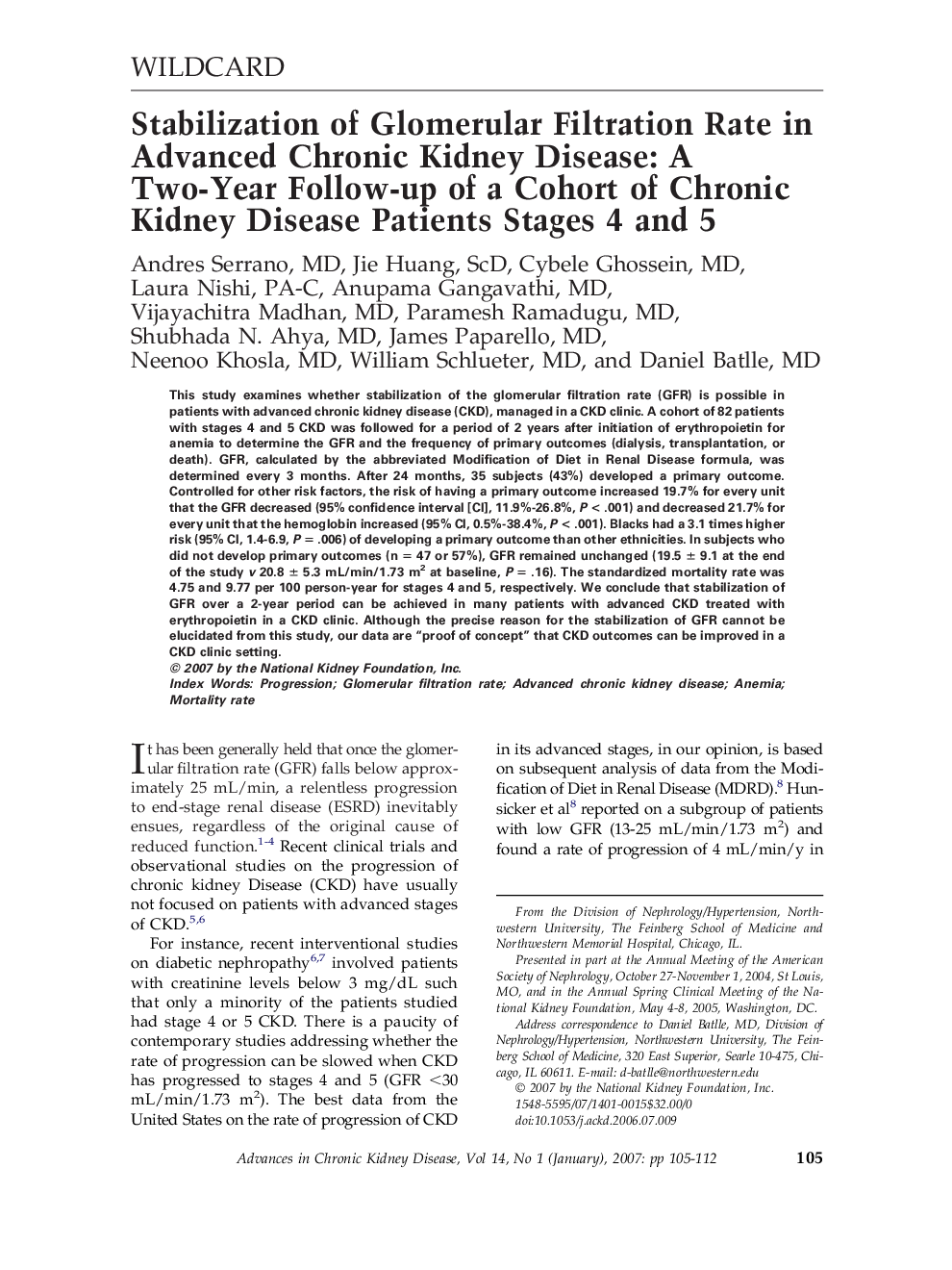| Article ID | Journal | Published Year | Pages | File Type |
|---|---|---|---|---|
| 3846988 | Advances in Chronic Kidney Disease | 2007 | 8 Pages |
Abstract
This study examines whether stabilization of the glomerular filtration rate (GFR) is possible in patients with advanced chronic kidney disease (CKD), managed in a CKD clinic. A cohort of 82 patients with stages 4 and 5 CKD was followed for a period of 2 years after initiation of erythropoietin for anemia to determine the GFR and the frequency of primary outcomes (dialysis, transplantation, or death). GFR, calculated by the abbreviated Modification of Diet in Renal Disease formula, was determined every 3 months. After 24 months, 35 subjects (43%) developed a primary outcome. Controlled for other risk factors, the risk of having a primary outcome increased 19.7% for every unit that the GFR decreased (95% confidence interval [CI], 11.9%-26.8%, P < .001) and decreased 21.7% for every unit that the hemoglobin increased (95% CI, 0.5%-38.4%, P < .001). Blacks had a 3.1 times higher risk (95% CI, 1.4-6.9, P = .006) of developing a primary outcome than other ethnicities. In subjects who did not develop primary outcomes (n = 47 or 57%), GFR remained unchanged (19.5 ± 9.1 at the end of the study v 20.8 ± 5.3 mL/min/1.73 m2 at baseline, P = .16). The standardized mortality rate was 4.75 and 9.77 per 100 person-year for stages 4 and 5, respectively. We conclude that stabilization of GFR over a 2-year period can be achieved in many patients with advanced CKD treated with erythropoietin in a CKD clinic. Although the precise reason for the stabilization of GFR cannot be elucidated from this study, our data are “proof of concept” that CKD outcomes can be improved in a CKD clinic setting.
Related Topics
Health Sciences
Medicine and Dentistry
Nephrology
Authors
Andres MD, Jie ScD, Cybele MD, Laura PA-C, Anupama MD, Vijayachitra MD, Paramesh MD, Shubhada N. MD, James MD, Neenoo MD, William MD, Daniel MD,
